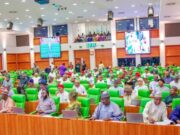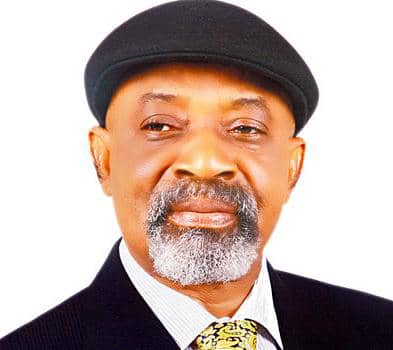Senator Chris Ngige, the former Minister of Labour and Employment under the Muhammadu Buhari administration, has accused some local government chairmen of being more corrupt than governors.
He claimed that certain council leaders are focused on acquiring luxury estates in Abuja, Lagos, and even overseas, rather than investing in critical public services such as healthcare and education in their communities.
Ngige pointed out that many local governments have failed to pay teachers and healthcare workers for months, despite the pressing need for infrastructure like schools and hospitals.
Speaking at the 29th annual general meeting (AGM) and scientific conference of the Association of Urological Surgeons, Nigeria (NAUS) in Enugu, Ngige lamented the neglect of over 15,000 primary healthcare centres, which were originally built as constituency projects.
He called on State Economic Planning Boards to act quickly and refurbish these centres, emphasizing the importance of local government in Nigeria’s healthcare system, which was foundational to the primary healthcare initiative pioneered by former Health Minister Prof. Olikoye Ransome-Kuti.
Ngige also took aim at the Supreme Court’s ruling on local government financial autonomy, urging the court to revisit its decision.
According to Ngige, the judgment undermines the 1999 Constitution, as amended, and he argued that it wrongly alters Section 7, which places local governments under the control of state governments.
He recalled a similar Supreme Court ruling in 2006 that rejected federal interference in local government funds, which had been challenged by the attorneys general of Lagos, Abia, and Delta states against President Olusegun Obasanjo’s 2005 Local Government Account Monitoring Committee Act.
The former minister voiced his opposition to direct payments from the federal government to local governments without necessary deductions for essential items such as salaries, pensions, and traditional rulers’ allowances.
Ngige described the Supreme Court’s decision as not only unconstitutional but also harmful, suggesting that it “throws away the baby with the dirty bathwater.”
Ngige also criticized the failure of the local government system, blaming the passivity of State Houses of Assembly and the failure of governors to uphold constitutional provisions related to local government.
He highlighted that many states had not established democratically elected councils or economic planning boards, both of which are mandated under Section 7 of the Constitution.
Ngige argued that local governments would function better if governors adhered to the law and if the Houses of Assembly held them accountable.
Drawing from his time as governor of Anambra State, Ngige recalled how, between 1999 and 2002, local government chairmen across Nigeria were guilty of withholding salaries, pensions, and allowances, thus further exacerbating the dysfunction within the local government system.
Ngige emphasized the need for greater adherence to the rule of law and accountability at the state level in order for Nigeria’s local government system to function effectively and serve the people’s needs.

















